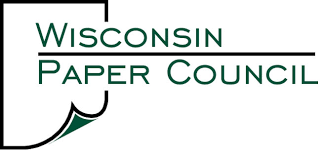Rep. Katrina Shankland and Sen. Tom Tiffany were both recognized by the Wisconsin Paper Council as legislators of the year, though each highlighted differing priorities at the group’s recent annual meeting.
Both lawmakers are part of the bipartisan Wisconsin Paper Caucus, which was started earlier this year. Tiffany, R-Minocqua, is chair for the Senate, and Shankland, D-Stevens Point, serves as vice chair for the Assembly.
“We have to work together in bipartisan ways,” said Gov. Tony Evers, who addressed attendees of yesterday’s event at Lambeau Field in Green Bay. He called the creation of the Paper Caucus “a huge step in the right direction.”
“If you think about what you did when you created that bipartisan caucus, that is a huge thing,” the guv said. “This is an area that they can be together on and make wise decisions.”
Still, the two legislators representing the caucus at the event hit on very different topics of importance to the paper industry when addressing attendees. Tiffany focused more on transportation, while Shankland discussed issues around education and the workforce shortage.
Tiffany, one of the Republicans on the Legislature’s Joint Finance Committee, highlighted increased funding for the state highway rehabilitation program in the version of the budget JFC passed last week.
“Something that’s very important to all you folks … You will see about $300 million increase over this budget, and you’re going to see significantly more roads move up in the queue as a result of putting more money into transportation,” he said.
JFC Republicans decided to raise vehicle title fees and registration fees in their version of the budget in order to boost transportation funding, according to Tiffany. He said he would have preferred to have covered the increase with the budget surplus, or by raising the gas tax.
“I did not win that battle,” he said. “But nonetheless, there’s going to be more money.”
He also highlighted a $100 million budget increase for local road aids, which go to repairs and maintenance for county roads and towns. And he said he’s about to start a renewed push for better rail service in Wisconsin.
Tiffany added: “We hope that we will be passing [the budget] next week before the whole Legislature, sending it on to Gov. Evers — and we sure hope he will sign it.”
Speaking to attendees earlier in the day, Shankland spotlighted the paper science department at UW-Stevens Point. She said the program is helping to grow the industry’s workforce, which has been dwindling in recent years.
“I’ve always been an advocate for higher education,” Shankland told WisBusiness.com in an interview. “Whether we’re investing more money into classrooms so students can graduate on time, or making sure that people who are eligible for need-based aid actually get financial aid.”
She explained that for the past few budget cycles, more than 22,000 technical college students who qualified for need-based financial aid from the state didn’t get any money, due to the program being underfunded.
Shankland said she’s introduced multiple bills to close the waitlist on those higher education grants, “because I think if you qualify for need-based aid in this state, you should get it.”
And, she said, ensuring more students can graduate on time would help the paper industry bring in more workers; many students in her area have to extend their higher education by a semester or two, because they’re waiting for certain classes to open up. She says UW-Stevens Point is doing its best to fix that problem, “but without state funding, that’s the challenge.”
“That’s one of the most incredible investments we could make as taxpayers — investing in the UW System,” she said. “For every $1 we put in, we get $23 back. That directly benefits every single member of the paper industry in this state.”
–By Alex Moe
WisBusiness.com






